As part of requirements for operation, Medicare-certified ambulatory surgery centers (ASCs) already have emergency plans in place for unpredictable natural disasters, such as fires, floods, and power outages. Many ASCs also have prepared for events such as the virus outbreak we’re experiencing currently, including strategies to keep employees safe and for close coordination with their local public health departments.
However, when it comes to having an emergency plan in place for technology, most ASCs tend to be far less prepared.
Some ASCs view their technology as a static asset that can be simply placed on hold, compared to the more mature technology infrastructure used by other healthcare organizations for surveillance, patient charting, and telemedicine. Others trust that their technology is foolproof or that their operations will not be disrupted, even in times of crises, negating any need for specific actions on their part.
But technology preparedness is an essential part of ASC emergency preparedness, minimizing the potential for deficient patient management, data insecurity, and operational breakdowns. While the Centers for Disease Control and Prevention (CDC) recommends postponing all elective procedures while the nation deals with flattening the curve of the COVID-19 pandemic, technology preparedness must be focused on continuity of necessary business operations during a crisis and a rapid, comprehensive ramp up when regular operations resume. Particularly as ASCs step in to fill hospital capacity gaps as part of the Centers for Medicare and Medicaid Services (CMS) waiver program to fight COVID-19, ASCs must ensure that they have the technological capacity necessary to fill this role.
Three technology-related preparedness strategies can help ASCs achieve these objectives:
Prepare staff to function remotely in times of crisis
An ASC can redirect internal staff from the office into remote operations from their homes, but dependence on an on-premise server puts crucial information that the ASC needs to function in a precarious situation. If something happens that destroys the information hub, a non-cloud-based ASC must start from scratch in terms of reconstructing patient records, finding past billing information, and rebuilding contact lists. Even in disasters such as a pandemic like COVID-19, where an on-premise server may be sitting in an office space untouched but inaccessible, staff will need to have a way to securely access the information from a remote location, with multiple users potentially logging in simultaneously.
While larger health systems may be able to purchase a virtual private network (VPN) to allow staff remote access to their on-premise server, it will likely be cost-prohibitive for smaller ASCs and the information will not necessarily be encrypted. ASCs also run the risk of technical issues that will not be able to be resolved without the presence of an IT support person that can be physically onsite to diagnose issues. A cloud-based platform eliminates the risks posed by a physical server in the event of an emergency, provides multiple points of secure access for authorized staff to log in and find medical records, and will keep information secure even when physical structures are not.
Determine secure patient communication methods
Depending on the nature of the catastrophe, patient volume may dramatically increase or significantly decrease. During an emergency, timely patient communication is essential, be it rescheduling appointments, helping disseminate emergency information, or guiding patients towards alternative locations for their procedures.
Yet many healthcare organizations are unprepared for secure communication. In a 2018 survey of healthcare providers on disaster preparedness, 44% of hospital-based respondents said that secure, HIPAA-compliant messaging is a key requirement of a disaster preparedness plan. But despite this, 22 percent still reported using unsecured texting to communicate with patients and family members.
Because data is encrypted and stored offsite, cloud-based software offers the highest degree of data security. Programs like HST Schedule Share allow secure transmissions between surgeons, staff, and patients, simplifies updates, and facilitates urgent changes to scheduling in a crisis.
Adopt software systems designed for interoperability with health systems
While electronic health record (EHR) interoperability is a dynamic and evolving challenge in the greater health care environment, ASCs that are proactive in their choice of software systems will be better prepared to communicate with the local health systems in an emergency. During a crisis, the need to transmit discreet patient data like relevant diagnostic information, medical records, and CDC tracked data to the local health systems is paramount. But while intersystem operability is more of a goal than a widespread reality, ASCs should ensure that their software platforms are designed to adapt to necessary changes to achieve that goal.
It is essential for the ASC industry to look at ways to ensure that EHRs are interoperable with local health systems in times of crisis, and to move quickly on implementing sound and sustainable strategies. The ability to maintain business continuity in times of crisis greatly depends on the capabilities of organizations to function when it’s next to impossible to operate business as usual. While ASCs are exempt from many of the requirements in place for other health system entities such as hospitals, there are a wealth of resources to help ASCs evaluate all aspects of their business to help prepare for disasters. Ensuring that a plan for maintaining and sustaining the technology-driven components of ASC business operations is an essential part of this planning process. As the U.S. works towards battling the spread of COVID-19, ASC leaders must take this opportunity to reflect on the implications of the pandemic for their business and determine ways to ensure patient communication is available and optimal no matter the circumstances.
15% Off Medical Practice Supplies
VIEW ALL
 Manual Prescription Pad (Large - Yellow)
Manual Prescription Pad (Large - Yellow) Manual Prescription Pad (Large - Pink)
Manual Prescription Pad (Large - Pink) Manual Prescription Pads (Bright Orange)
Manual Prescription Pads (Bright Orange) Manual Prescription Pads (Light Pink)
Manual Prescription Pads (Light Pink) Manual Prescription Pads (Light Yellow)
Manual Prescription Pads (Light Yellow) Manual Prescription Pad (Large - Blue)
Manual Prescription Pad (Large - Blue)
__________________________________________________
Appointment Reminder Cards
$44.05
15% Off
$56.30
15% Off
$44.05
15% Off
$44.05
15% Off
$56.30
15% Off
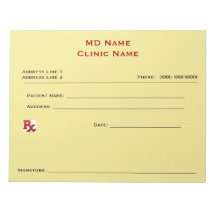
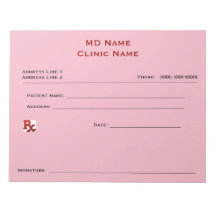
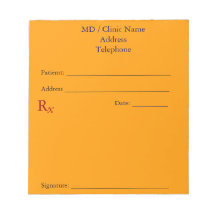
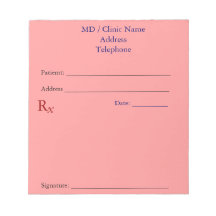
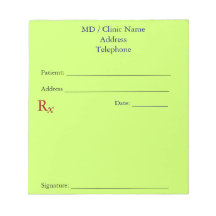
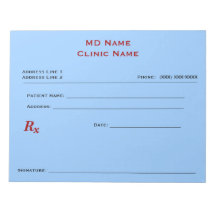
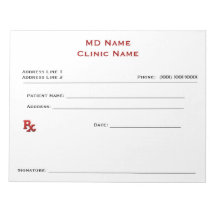





No comments:
Post a Comment